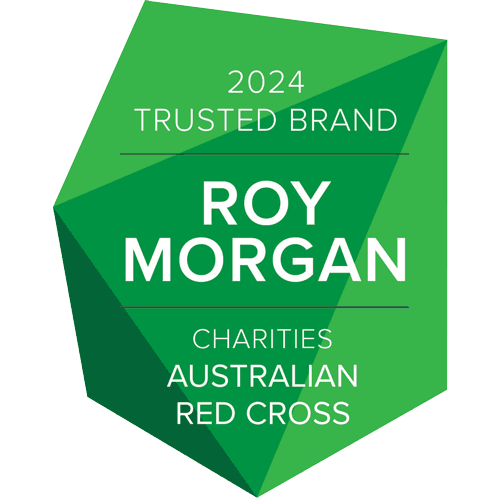Remote communities headed home
Recovery begins after Cyclone Trevor. Top End community members are relieved to be headed home after sheltering in evacuation centres while their homelands were lashed by Tropical Cyclone Trevor with its very destructive winds and rain.
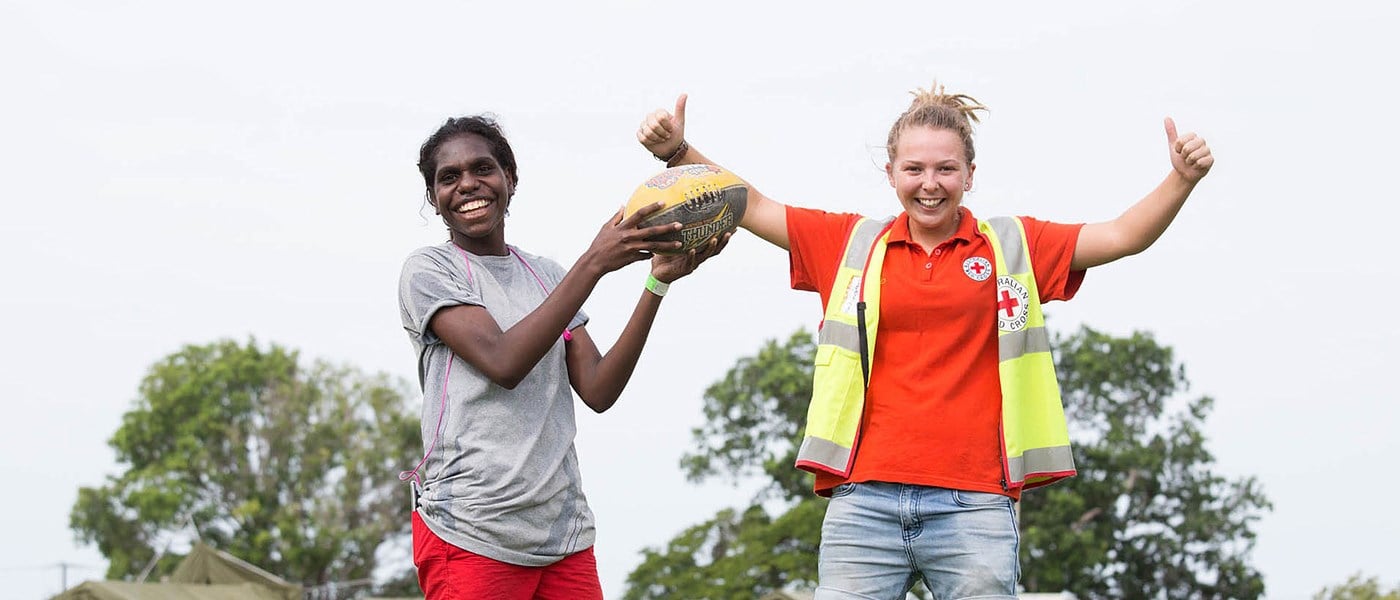
Trevor crossed onto the mainland as a category four storm on the morning of Saturday 23 March 2019, producing wind gusts of 230 km/h around the Northern Territory’s border with Queensland.
Red Cross managed three evacuation centres in Darwin and Katherine where 1,000 people bedded down as part of a massive response which saw thousands of people evacuated from their remote communities in the path of the cyclone.
The extraordinary event brought together people from far flung communities including Groote Eylandt, Borroloola, Numbulwar, Robinson River and Bickerton Island. It was the Northern Territory’s largest evacuation since Cyclone Tracy. A staggering 2,000 people registered as evacuees through Red Cross’ Register.Find.Reunite service.
"We are lucky we moved when we did. It’s a big mess back home."

Nicholas O’Keefe from the Robinson River community says his entire town was evacuated as the biggest storm in his lifetime was approaching.
He spoke to us after they’d spent nearly a week in the Marrara evacuation centre.
“We are lucky we moved when we did. It’s a big mess back home,” he says. “It’s OK here. I’m happy here. The community is feeling OK. Some are a bit worried about going home. But it’s better to be here. We don’t know if we have houses or we can drink the water.
“You guys are so much help. We get a lot of respect. Thank you for everything – food, boots, helping with the kids and their school, security when we sleep. We want to thank you guys for everything.”
Even though the centre has been full of people from different clans, Nicholas says everyone is getting on well.
“We are all together. We have all been through the same thing. That brings us together.”
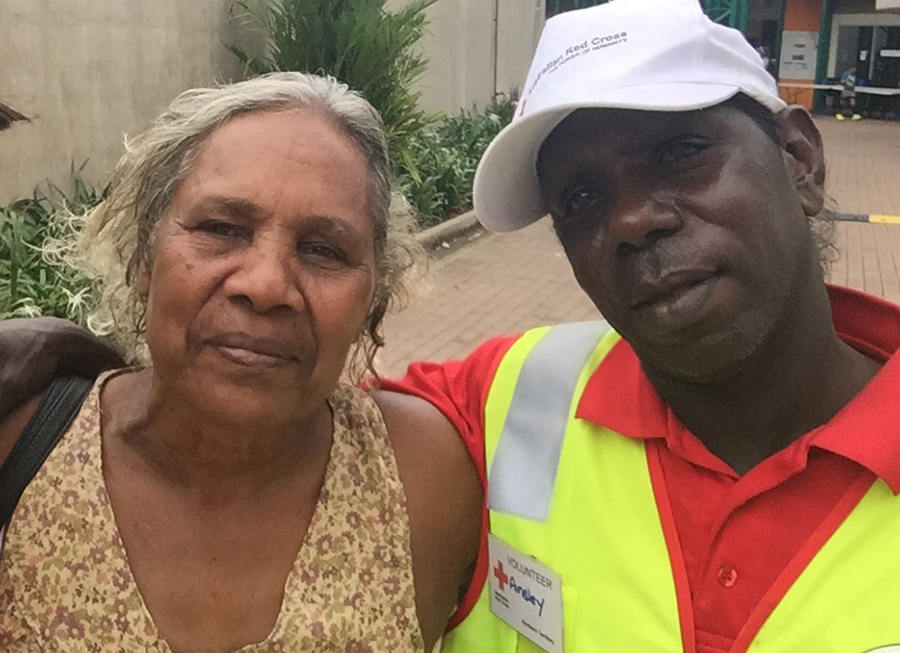
Borroloola Elder Joyce Dirdi spoke to us during the height of the operation, when she’d already spent four days away from her home, sheltering along with as many as 500 other people in Darwin’s Marrara Indoor Stadium.
“I’m tired and anxious to go home,” she says. “We’re wondering what happened to our home. It’s traumatic to leave home and come up here to Darwin.
“The kids are closed in the stadium and all the clans are sleeping together – it’s the first time we’re sharing a space.
"The best thing is being together. Having the whole groups of families together."
“But some good things have happened. We’re used to having community meetings and we’re still getting together every day.
“The best thing is being together. Having the whole groups of families together. In Borroloola there are four clan groups. Now we are all together, and having constant meetings and working things out.
“I want to say that Red Cross is doing a very, very great job. We are on board with Red Cross. They’ve been a great help, sitting down and listening to us, planning what to do with us.
“A big thank you to Red Cross from all the clan group.”
"It’ll be OK. You mob will be able to go back home soon."
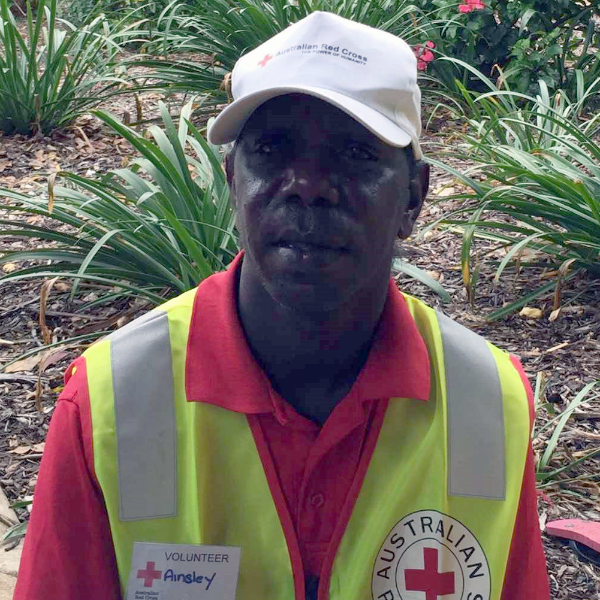
Ainsley Kerinaiua was deployed to Darwin from the Tiwi Islands where he is a Red Cross youth worker. He says it’s been a great experience.
”I’ve been working with Red Cross staff and volunteers doing whatever the community members need to help. It’s my first time in an evacuation centre and oh my god seeing all the community here when I arrived – all away from their home - made me nervous.
“They’re all missing their home and family members left behind. I try to talk to them, make them feel comfortable, say, ‘It’ll be OK. You mob will be able to go back home soon.’
“They really like seeing an Aboriginal person from Red Cross. They come up to me and ask for what they want. I feel useful.
“The best thing? I found my uncle’s wife and children from Borroloola. They were very happy to see me.
“It’s been a good experience. If anything like this happens again I’ll come back and help.”
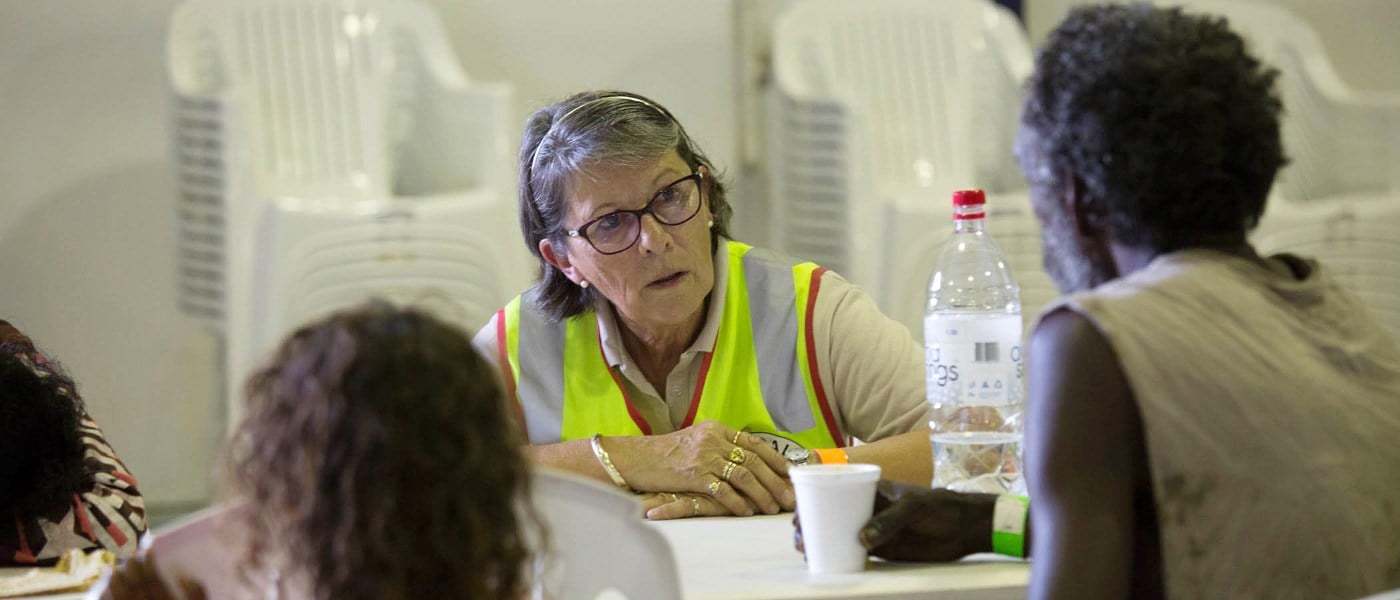
Red Cross Emergency Services coordinator Jay Noble says evacuees were generally in good spirits. “They’re really grateful for the assistance they receive but were keen to return home after what was a big week.
“There were a number of challenges when you’re dealing with that number of people. We’re really focused on the welfare of people. In these centres you’re looking at basic essential services, a roof over their head, something to eat and general support. It is a temporary solution and the important thing is returning home.”
You can help support our emergency teams with a donation to Red Cross Disaster Relief and Recovery.
Charity donations of $2 or more to Australian Red Cross may be tax deductible in Australia. Site protected by Google Invisible reCAPTCHA. © Australian Red Cross 2025. ABN 50 169 561 394
